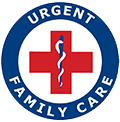Diarrhea, bloating and intestinal cramps have many causes. Some people have diarrhea when they are stressed or anxious. Intestinal discomfort can be caused by your diet or by a virus or bacterial infection, or it can be a symptom of an underlying health condition.
Acute Diarrhea
Diarrhea or intestinal cramps that come on suddenly may be caused by:
- Bacteria from contaminated food or water
- A virus such as rotavirus or norovirus
- Intestinal parasites
- Reaction to a medication containing magnesium
- Reaction to an unfamiliar food, or combination of foods
If several people who ate the same food get diarrhea, it is probably caused by bacteria in the food (food poisoning). Children might pick up a virus at school or from their siblings. Diarrhea and cramps caused by a bacteria or virus may be accompanied by other symptoms such as a headache, body aches, low fever, or fatigue.
Diarrhea is common when you travel to a foreign country and are exposed to unfamiliar foods, or bacteria to which your body is not immune.
Most acute diarrhea clears up in a few hours or days. Until the diarrhea stops, avoid putting strain on your digestive system:
- Keep hydrated by drinking water or sports drinks. Suck on ice chips if you feel nauseous.
- Avoid milk, red meat, and fatty, greasy, or spicy foods
- Stick to bland foods. The ‘BRAT” diet (bananas, rice, applesauce, and toast) is recommended.
- Avoid strenuous exercise
Treatment for diarrhea, cramps, and vomiting is available a Urgent Family Care in Knoxville without an appointment.
See a doctor if:
- The symptoms get worse
- The diarrhea does not clear up after a day or two
- You are pregnant
- Your child seems listless or disoriented
- You have a high fever
- You are concerned or worried
Dehydration is a special concern in small children, infants, and the elderly. Offer water or Pedialyte, and see a doctor if the person does not want to drink anything.
Ongoing Diarrhea
Diarrhea that does not clear up in a few days, or a change in bowel habits, could be a symptom of a more serious infection or a chronic condition, including:
- Intestinal parasites – Your doctor will test you and prescribe medication to get rid of the parasite.
- Lactose intolerance – Difficulty digesting milk, yogurt, or dairy products
- Irritable Bowel Syndrome (IBS)
- Crohn’s disease
- Herpes
- A structural bowel disorder, such as diverticulitis, colitis, Celiac’s disease, or cancer
Urgent Family Care will evaluate your intestinal disorder and help you develop a plan to treat or manage your symptoms.
If your intestinal disorder worsens or you develop additional symptoms, come to Urgent Family Care in Knoxville. Walk-ins are welcome!
DISCLAIMER: The information on this page is not intended to replace the advice of a physician. It is information that is generally available. Always seek the advice of a physician or other qualified healthcare provider with any questions you may have regarding a medical condition. If you believe you are experiencing a medical emergency, call 911.
